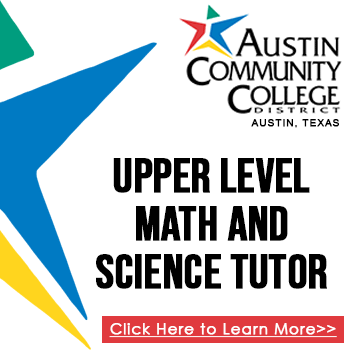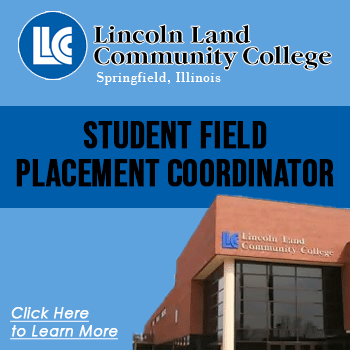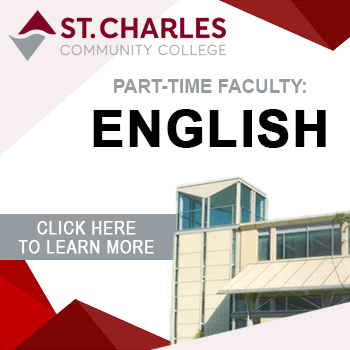This job has Expired

Counseling Psychology Postdoctoral Fellowship
Job Description
Counseling Psychology Postdoctoral Fellowship
Full Job Description
Required Qualifications:
- Doctoral degree in psychology from an APA-accredited program (or expected graduation by start date)
- Experience working and collaborating with diverse populationa
Application Instructions:
- A complete application will contain the following:
- Current CV
- Letter of interest, detailing commitment to and experience with working with diverse populations
- Unofficial Graduate Transcript(s)
- One letter of recommendation
- List of two additional professional references
Visit employment.umn.edu. Applications for this position will not be reviewed until February 2023. Position start is July 2023 (negotiable).
Counseling Psychology Postdoctoral Fellowship
Seeking individuals who are skilled in addressing issues for socially and/or economically disadvantaged students, or individuals from historically underrepresented groups
This position is classified job code 9546 - Post-Doctoral Associate: Postdoctoral associates are academic employees who conduct research, teach, or provide service that enhances career skills or allows for opportunities to learn new research or teaching techniques. For information about postdoctoral associate opportunities at the University of Minnesota, please visit https://grad.umn.edu/prospective-postdocs.
Applications for this position will not be reviewed until February 2023. Potential position start is July 2023 (negotiable).
Overview
The University of Minnesota Medical School’s Office of Learner Development is currently accepting applications for their Postdoctoral Counseling Fellowship in Medical Education. This is a one-year, full-time position with the option to renew for a second year. The purpose of the program is to prepare license-eligible psychologists to support the unique performance and wellbeing needs of learners from socially and/or economically disadvantaged backgrounds, or historically underrepresented groups in higher education (e.g., first generation).
Given current mandates in medical education to train a more diverse physician workforce, trainee cohorts are becoming more diverse and inclusive. As such, the demands and challenges experienced by trainees have, correspondingly, become more diverse and nuanced as well. To meet the enriching opportunities these needs present, particular consideration will be given to applicants with diverse ethnic, racial, economic, and educational backgrounds and experiences; and who have a special interest in working with (and developing support structures for) trainees who identify as coming from historically marginalized communities. The program is also looking for BIPOC applicants from groups that historically have been underrepresented in providing psychological services in a medical education setting.
The postdoctoral fellowship emphasizes a generalist training that prepares graduates to provide psychologically-informed services and consultation to trainees, faculty and staff in a medical education setting. These include specific services informed by a comprehensive prevention model (i.e., primary, secondary and tertiary levels of intervention), and direct, collaborative efforts with affiliated medical school offices and committees. Structured educational activities include didactic seminars, project development and implementation, qualified individual supervision (for licensing requirements), and participation in professional conferences. Support in cultivating professional connections within BIPOC networks in the broader state and local professional psychology communities will also be provided (and encouraged).
Lastly, this position will be inclusive of annual training periods and objectives adapted to the relative assets and training needs of respective fellows. While this position supports trainees across medical education [from primary training (undergraduate medical education – UME) to residency and fellowship (graduate medical education – GME)], the training would prepare a professional for a variety of settings.
Specific roles and responsibilities of the position may include the following:
Direct Trainee Support - 30%
- Short-term supportive counseling: Provide direct support to UME and GME medical trainees in need of short-term counseling, and provide relevant referrals;
- Academic counseling: Provide direct support and referrals to address trainee performance needs across the UME/GME continuum. Relevant areas include promoting greater performance efficiency and effectiveness [e.g., addressing motivational and/or self-efficacy challenges; skills development (test-taking, communication, professionalism, etc.); and, time and stress management];
- Academic & Career advising: As needed, provide trainees with input on options regarding relevant academic and career decisions. Work collaboratively with academic & faculty advisors to coordinate planning and referral options when needed;
- Provide faculty advising to a designated peer-led trainee groups (e.g., Well-being Committee, Peer Mentorship Committee, etc.).
Remediation and Crisis Support - 20%
- Provide short-term supportive counseling to students experiencing unexpected and/or extraordinary life, professional or personal events that impact academic progress and/or well-being;
- Collaborate with affiliated UME and GME offices in the development and coordination of remediation (academic progress) and self-care (well-being) plans;
- Gain experience with the COSSS (UME) and CCC (GME) processes and remediation procedures available to UMMC medical trainees, and provide consultation on the development and implementation of plans.
Program Development and Education - 40%
- Support Trainee transitions by working collaboratively with Student Affairs (SA) and Curriculum staff in the planning and coordination of transition programming [e.g., Orientation (MS1); clerkship preparations (MS2); residency planning (MS3); and others as needed];
- Create and present workshops/informational videos for academic performance (e.g., test-taking, time-management) and well-being (e.g., burnout prevention; well-being support resources)];
- Work with identified UME and GME committees designated to create and oversee wellness and well-being programming efforts;
- Project development – in collaboration with the DLD and ADSA, the fellow will propose and oversee a project oriented toward addressing a specific need in either UME or GME related to supporting medical trainees (examples could include addressing diversity and inclusion challenges; reducing the incidence of harassment and mistreatment in medical education; and/or, improving available, affordable and accessible mental health support to medical trainees).
Service and Professional Development - 10%
- Attend and participate in committees undertaking issues and decisions impacting trainee progress. Provide input informed by psychological principles and best practices;
- Collaborate with the Evaluation & Assessment office to develop and complete a scholarly project in the form of a poster, oral presentation or paper that focuses on one or more elements of reported well-being or performance in UME or GME trainees;
- Become fluent in the area of physician burnout and the current literature on developing resilience in physicians via reviewing the literature.
- Gain experience in learner coaching for improved strategies and skills for efficient and effective learning.
- Primary supervision will be provided by an LP in the state of Minnesota (who has informed the MN Board of Psychology of their competence in supervision).
- “Supervision of an applicant for licensure as a licensed psychologist shall include at least two hours of regularly scheduled in-person consultations per week for full-time employment, one hour of which shall be with the supervisor on an individual basis. The remaining hour may be with a designated supervisor.” (Psychology Practice Act, 2013, 148.925 Subd. 5)*
- Supervision will be “in-person consultation, which may include interactive visual electronic communication,” (148.925) and be documented by the postdoctoral supervisee.
- Attend relevant professional meetings and/or join affiliated groups dedicated to promoting the efforts of psychologists in medical education (e.g, AAMC; APAHC; MELS)
Reporting:
The PDFP fellow will report to, and receive clinical supervision from the Director of Learner Development (or, from their designated proxy as needed in the case of a temporary absence).
Compensation range:
$50,290 - $55,000 (based on level of training, expertise, and associated benefits)
The Office of Learner Development (OLD) provides a range of service and resource options to support student & trainee performance, wellbeing and mental health across the UME and GME years.
It is our goal to assist students in identifying ways of adapting learning approaches to meet the unique challenges of medical education, and in developing skills for lifelong learning, success and satisfaction in medicine.
OLD seeks to foster skills for enhanced effectiveness & efficiency in all areas of academic performance; it also acknowledges the importance of supporting the contexts within which student/trainee learning occurs. In this regard, OLD works closely with student groups and other offices within Medical Education to promote wellbeing, mental health, effective and safe learning environments, work-life balance, and professionalism, all of which contribute to mitigating known demands, transitions, and life events impacting student/trainee experiences.
Applications must be submitted online. To be considered for this position, please click the Apply button and follow the instructions. You will have the opportunity to complete an online application for the position and attach a cover letter and resume.
Additional documents may be attached after application by accessing your "My Job Applications" page and uploading documents in the "My Cover Letters and Attachments" section. This position requires that you attach , Current CV, Letter of interest, detailing commitment to and experience with working with diverse populations, Unofficial Graduate Transcript(s), One letter of recommendation and List of two additional professional references.
This position will remain open until filled.
To request an accommodation during the application process, please e-mail employ@umn.edu or call (612) 624-UOHR (8647).
The University recognizes and values the importance of diversity and inclusion in enriching the employment experience of its employees and in supporting the academic mission. The University is committed to attracting and retaining employees with varying identities and backgrounds.
The University of Minnesota provides equal access to and opportunity in its programs, facilities, and employment without regard to race, color, creed, religion, national origin, gender, age, marital status, disability, public assistance status, veteran status, sexual orientation, gender identity, or gender expression. To learn more about diversity at the U: http://diversity.umn.edu.
Any offer of employment is contingent upon the successful completion of a background check. Our presumption is that prospective employees are eligible to work here. Criminal convictions do not automatically disqualify finalists from employment.
Please note: All employees at the University of Minnesota are required to comply with the University’s Administrative Policy: COVID-19 Vaccination and Safety Protocol by either providing proof of being fully vaccinated on their first day of employment, or complete a request for an exemption for medical exemption or religious reasons. To learn more please visit: https://safe-campus.umn.edu/return-campus/get-the-vax
The University of Minnesota, Twin Cities (UMTC)
The University of Minnesota, Twin Cities (UMTC), is among the largest public research universities in the country, offering undergraduate, graduate, and professional students a multitude of opportunities for study and research. Located at the heart of one of the nation's most vibrant, diverse metropolitan communities, students on the campuses in Minneapolis and St. Paul benefit from extensive partnerships with world-renowned health centers, international corporations, government agencies, and arts, nonprofit, and public service organizations.
*Please mention you saw this ad on AcademicJobs.*




